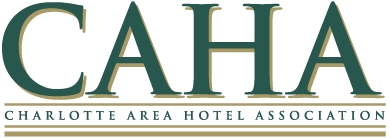For years, rumors have popped up about whether and when the time might be right to build a convention center hotel in the range of 800 to 1,000 rooms. On Wednesday, Charlotte City Council member James Mitchell, who leads the economic development committee, told CBJ the time is now.
During an interview about prospects for the city to help pay for a Major League Soccer stadium— an issue that resurfaced on council’s agenda on Monday— Mitchell explained the need for a convention hotel as one of several reasons the city is reducing its possible investment in the stadium by $14 million.
Obviously, $14 million isn’t going to build a hotel. Mitchell pointed to possible tourism tax funding for a hotel, an amateur sports complex and other projects as the basis for trimming the soccer proposal to $30 million from $43.75 million. In January, council was asked to vote on committing $43.75 million for soccer, but instead backed away altogether, citing other priorities and an upcoming budget negotiation.
A different portion of tourism tax money would be used for a convention center hotel than the one eyed for an MLS stadium.
The budget passed this month in a unanimous vote, leading to the resurrection of the soccer talks. A convention center hotel proposal is sure to stir debate about how best to use taxpayer money as well as the risk of spending additional money on the convention industry, a loss leader in just about every city in the nation.
“We have to upgrade now,” Mitchell said of considering a hotel. In large measure, he said, beginning discussions this summer about a hotel that would include public funding makes sense because council is expected to approve a proposed $100 million upgrade to the convention center in August. “We need a convention center hotel to separate us” from similar-sized cities, Mitchell added.
His sentiments dovetail with a presentation on hospitality projects delivered to council by Ron Kimble, a former city manager who now is a special assistant to the city manager. As part of a detailed explanation of the four sources of tourism tax revenue, and how each of those sources can be used, Kimble listed “Convention Center hotel partnerships” among target projects over the next six years.
An internal study by the Charlotte Regional Visitors Authority two years ago found that a lack of meeting space, a need for updating the look of the convention center and a lack of large-scale hotels are the largest hurdles for recruiting events against rivals such as Tampa, Nashville, Baltimore and Indianapolis.
Mitchell didn’t disclose any potential funding scenarios for a convention center hotel beyond saying it could, and likely would, include public money.
Cities including Indianapolis, Dallas and Cleveland have used tax money to help pay for similar projects aimed at boosting convention bookings. A 1,000-room JW Marriott in Indianapolis next to the convention centeropened in 2011. The $450 million project included $60 million from local government.
Also in 2011, Dallas opened a 1,000-room Omni hotel tied to its convention center. Public money paid the $500 million tab for the city-owned hotel. And last summer, as Cleveland hosted the Republican National Convention, a 600-room Hilton convention hotel opened. It cost $276 million, with Cuyahoga County paying the construction tab. The county owns the hotel.
Adam Jones, a convention and meetings expert at consultant PwC, said that while the industry has rebounded from the recession, growth across the country is nominal because of a heightened awareness of higher travel costs, among other factors. Cities are also focusing more on finding ways to make their destinations unique and more convenient. The convention center renovations project here includes improved pedestrian access to a nearby development on Stonewall Street that will be anchored by a Whole Foods grocery store and an emphasis on making it as easy as possible for convention-goers to reach uptown attractions on foot.
The largest uptown hotel, the 700-room Westin Charlotte, opened in 2003. City funding accounted for $16 million of the $143 million project cost. In return, the city received 500 spaces in the adjacent parking deck as well as access to use conference rooms in the hotel.
According to the 2016 visitors authority annual report, the convention center hosted 522 events last year, most of them for local groups and meetings. Of that total, 31 events were conventions and trade shows — the ones that bring in regional and national attendees and generate tourism spending through hotel room bookings and other visitor spending. Like most cities, Charlotte’s tourism and convention industry is heavily subsidized through taxes on hotel rooms, restaurant meals and rental cars, money used to help pay for marketing campaigns, offset operating losses and pay back construction and maintenance costs on various arenas, museums and theaters.
The visitors authority reported revenue of $15.2 million for the convention center last year, a figure 8% higher than budget forecasts, but down 12% from revenue of $17.2 million in fiscal year 2015.
Mohammad Jenatian, head of the Greater Charlotte Hospitality & Tourism Alliance, an industry trade group, said he hasn’t been involved in preliminary talks about a convention hotel. In general, he said, “Our position has always been that we need to invest dollars in demand-generators” to help tourism expand.
Occupancy rates, room revenue and demand for hotels in Charlotte all made gains last year, according to various industry measurements and studies. This year, 1,000 new hotel rooms will be added uptown and 2,000 are under construction or in the planning stages.
An industry study by consulting firm PwC found that the number of conventions, group conferences and trade events nationwide stayed steady from 2009 to 2012 at 1.8 million. During that period, attendees increased to 225 million from 205 million and direct spending from those events grew to $280 billion from $263 billion.
Erik Spanberg
Charlotte Business Journal




